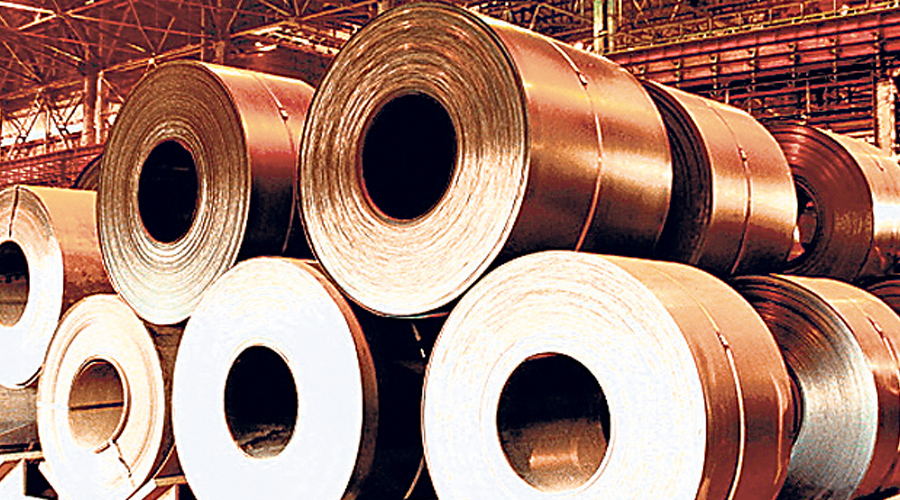A day after the Union budget slashed customs duties on a gamut of steel products with the aim to rein in escalating domestic prices, steel producers in the country have increased prices by Rs 1,000-1,500 a tonne.
Primary producers such as state-run Steel Authority of India Ltd (SAIL) raised prices of benchmark hot rolled coil prices as well as cold rolled items. Private player JSW Steel also raised prices by Rs 1,000 a tonne on certain products. Other large producers are likely to follow suit.
While reacting to the budget proposals, primary producers had pointed out on Monday that the duty cut would have limited impact on domestic prices given that steel prices across the globe were firm. Moreover, around 60 per cent of imports come from countries with which India has free trade agreements such as Japan and Korea. In short, these imports can anyway come at zero per cent duty even before the budget move.
Steel prices in the domestic market have rallied nearly 50 per cent from the low it fetched in July, backed by a robust domestic demand and buoyant international prices. Benchmark HRC is now hovering around Rs 54,000 a tonne.
The budget had cut duties by 2.5-5.5 per cent on a range of products. It also temporarily suspended countervailing duties and anti dumping duties on certain products coming from a few countries, notably China.
“There was a general expectation that with reduction of duty in the budget, steel prices should come down considerably, but it is the reverse what happened today,” Sanjay Budhia, managing director of Patton International, an engineering exporter out of Bengal, said.
A source close to the steel mills argued that prices in India would not come down unless the prices in the international markets, especially China, come down.
“Steel prices in the US are ruling at $680 a tonne. Adding freight charges and the reduced customs duty, the price goes to $758 a tonne or Rs 55,334 tonne, while domestics’ prices are hovering around Rs 53,000-55,000 a tonne,” the source said.
User industries also pointed out that the impact of the reduced duty would not be felt here before 2-3 months. “It would at least take that long if someone contracts steel today to reach his factory. Till such time, mill prices in India would rule firm,” a user industry official said.
Rising steel prices are putting pressure on the user industries, especially those who have entered into long term contracts with buyers, in India or overseas.
“We have been pleading with our customers to raise prices given the unprecedented rise. However, they are not ready to offer more than a low single digit hike. We are really at a bind,” Budhia complained, urging the government to take more steps.










